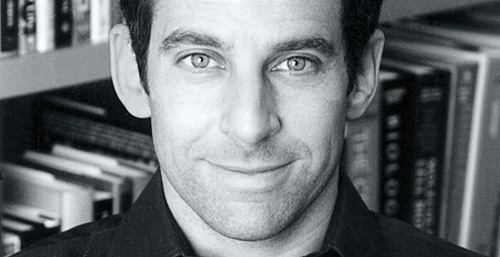Reposted from the LA Times:
http://www.latimes.com/news/opinion/commentary/la-oe-harris15mar15,0,671840.story?coll=la-home-commentary
Pete Stark, a California Democrat, appears to be the first congressman in U.S. history to acknowledge that he doesn't believe in God. In a country in which 83% of the population thinks that the Bible is the literal or "inspired" word of the creator of the universe, this took political courage.
Of course, one can imagine that Cicero's handlers in the 1st century BC lost some sleep when he likened the traditional accounts of the Greco-Roman gods to the "dreams of madmen" and to the "insane mythology of Egypt."
Mythology is where all gods go to die, and it seems that Stark has secured a place in American history simply by admitting that a fresh grave should be dug for the God of Abraham — the jealous, genocidal, priggish and self-contradictory tyrant of the Bible and the Koran. Stark is the first of our leaders to display a level of intellectual honesty befitting a consul of ancient Rome. Bravo.
The truth is, there is not a person on Earth who has a good reason to believe that Jesus rose from the dead or that Muhammad spoke to the angel Gabriel in a cave. And yet billions of people claim to be certain about such things. As a result, Iron Age ideas about everything high and low — sex, cosmology, gender equality, immortal souls, the end of the world, the validity of prophecy, etc. — continue to divide our world and subvert our national discourse. Many of these ideas, by their very nature, hobble science, inflame human conflict and squander scarce resources.
Of course, no religion is monolithic. Within every faith one can see people arranged along a spectrum of belief. Picture concentric circles of diminishing reasonableness: At the center, one finds the truest of true believers — the Muslim jihadis, for instance, who not only support suicidal terrorism but who are the first to turn themselves into bombs; or the Dominionist Christians, who openly call for homosexuals and blasphemers to be put to death.
Outside this sphere of maniacs, one finds millions more who share their views but lack their zeal. Beyond them, one encounters pious multitudes who respect the beliefs of their more deranged brethren but who disagree with them on small points of doctrine — of course the world is going to end in glory and Jesus will appear in the sky like a superhero, but we can't be sure it will happen in our lifetime.
Out further still, one meets religious moderates and liberals of diverse hues — people who remain supportive of the basic scheme that has balkanized our world into Christians, Muslims and Jews, but who are less willing to profess certainty about any article of faith. Is Jesus really the son of God? Will we all meet our grannies again in heaven? Moderates and liberals are none too sure.
Those on this spectrum view the people further toward the center as too rigid, dogmatic and hostile to doubt, and they generally view those outside as corrupted by sin, weak-willed or unchurched.
The problem is that wherever one stands on this continuum, one inadvertently shelters those who are more fanatical than oneself from criticism. Ordinary fundamentalist Christians, by maintaining that the Bible is the perfect word of God, inadvertently support the Dominionists — men and women who, by the millions, are quietly working to turn our country into a totalitarian theocracy reminiscent of John Calvin's Geneva. Christian moderates, by their lingering attachment to the unique divinity of Jesus, protect the faith of fundamentalists from public scorn. Christian liberals — who aren't sure what they believe but just love the experience of going to church occasionally — deny the moderates a proper collision with scientific rationality. And in this way centuries have come and gone without an honest word being spoken about God in our society.
People of all faiths — and none — regularly change their lives for the better, for good and bad reasons. And yet such transformations are regularly put forward as evidence in support of a specific religious creed. President Bush has cited his own sobriety as suggestive of the divinity of Jesus. No doubt Christians do get sober from time to time — but Hindus (polytheists) and atheists do as well. How, therefore, can any thinking person imagine that his experience of sobriety lends credence to the idea that a supreme being is watching over our world and that Jesus is his son?
There is no question that many people do good things in the name of their faith — but there are better reasons to help the poor, feed the hungry and defend the weak than the belief that an Imaginary Friend wants you to do it. Compassion is deeper than religion. As is ecstasy. It is time that we acknowledge that human beings can be profoundly ethical — and even spiritual — without pretending to know things they do not know.
Let us hope that Stark's candor inspires others in our government to admit their doubts about God. Indeed, it is time we broke this spell en masse. Every one of the world's "great" religions utterly trivializes the immensity and beauty of the cosmos. Books like the Bible and the Koran get almost every significant fact about us and our world wrong. Every scientific domain — from cosmology to psychology to economics — has superseded and surpassed the wisdom of Scripture.
Everything of value that people get from religion can be had more honestly, without presuming anything on insufficient evidence. The rest is self-deception, set to music.
reposted from: richarddawkins
my: highlights / emphasis / key points / comments

 reposted from: http://richarddawkins.net/article,525,n,n
reposted from: http://richarddawkins.net/article,525,n,n











